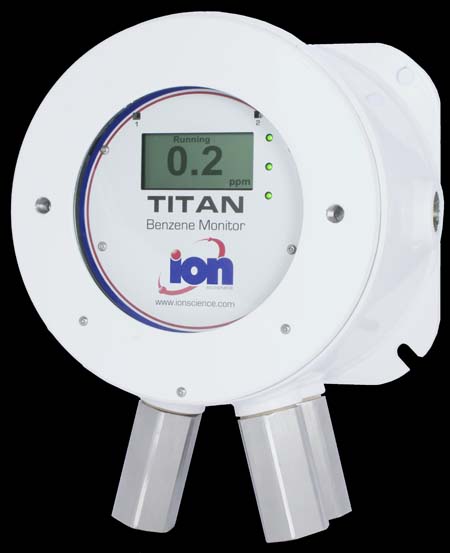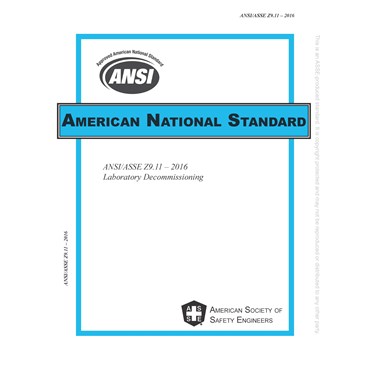 Having recently been awarded Underwriters Laboratories (UL) certification and on the back of increasingly stringent benzene exposure limits in the USA, Ion Science’s (www.ionscience.com) ‘Titan’ continuous, real-time benzene specific monitor is set to help petroleum refineries meet new Environmental Protection Agency (EPA) standards. These regulations, which come into force in 2018, are designed to reduce toxic chemical emissions, improve air quality and significantly decrease risk to public health in communities surrounding these facilities.
Having recently been awarded Underwriters Laboratories (UL) certification and on the back of increasingly stringent benzene exposure limits in the USA, Ion Science’s (www.ionscience.com) ‘Titan’ continuous, real-time benzene specific monitor is set to help petroleum refineries meet new Environmental Protection Agency (EPA) standards. These regulations, which come into force in 2018, are designed to reduce toxic chemical emissions, improve air quality and significantly decrease risk to public health in communities surrounding these facilities.
A non-profit safety organization established over 100 years ago, UL is widely recognized as a world leader in product safety testing and certification. Following high profile litigation cases, such as that involving four-year old Jarrett McElheney who contracted leukaemia while living on a mobile home park opposite a tank farm for storage of petroleum products, benzene exposure limits have been changing. The Occupational Health & Safety Administration, (OHSA), has already tightened limits; for example in June 2014, California lowered its long-term exposure level for the carcinogen from 20ppm to 1ppb.
On September 29th 2015, the EPA issued a final rule that will further control benzene emissions from petroleum refineries and ensure key information about exposure to the chemical is provided to the public and neighboring communities.
In 2018, it will be a national regulation requiring refineries to monitor benzene at key emission sources within their plants and around fence lines. The EPA stipulates that monitors should be able to detect benzene at very low levels and must encircle the facility to better identify sources of pollution under any wind direction. With the EPA’s increased monitoring requirements, petrochemical companies and other industrial facilities will need to utilize the latest state-of-the-art measurement technology.
As the world’s first continuous, real-time benzene specific monitor, Ion Science’s wall-mounted ‘Titan’ is capable of providing fast, accurate and reliable monitoring of ambient benzene along a boundary or fence line. Providing significant value for the money, it tracks exposure in real-time and automatically logs data.
Traditional photoionization detectors (PIDs) detect benzene but they also identify other less harmful volatile organic compound (VOC) gases often present at the same time. Incorporating the well proven Ion Science MiniPID technology, the highly sensitive ‘Titan’ samples and analyzes the environment to provide continuous feedback of ambient benzene levels. When a sample is taken, the benzene component is chemically filtered using a robust separation technology.
Featuring a clear display, ‘Titan’ provides users with an immediate warning alarm system when hazardous levels of benzene are detected. It offers two relays with configurable levels to integrate into site alarm systems. Flashing lights are used as an alarm signal to give a clear indication when benzene levels are present.
Data is stored internally and remotely connects to a PC. The continuous, real-time measurement facilitates the analysis of trends and allows activity levels to be accurately identified. Designed to operate in conditions ranging from -4 ºF up to 140 ºF, ‘Titan’ is unaffected by changes in ambient temperature.
Modular in design, ‘Titan’ is easy to service and can run for up to six months at a time without intervention. Working parts can be easily removed and serviced or replaced by another ‘plug and play’ service module. It also provides removal of particulate contamination in the air stream to provide long-term service free sampling.
Like all Ion Science PIDs, ‘Titan’ utilizes the company’s unique patented Fence Electrode technology for unrivaled resistance to humidity and contamination, making it ideal for extended operation in harsh environments. It is designed to IP65 and meets UL / CSA / ATEX / IECEx hazardous area safety approvals.
Duncan Johns, Managing Director at Ion Science comments: “The ‘Titan’ is truly revolutionary. We’re so excited to be able to offer the US Petrochemical Industry a benzene specific technology in a practical solution that is specially designed to help protect employees and the public from exposure and limit potential liability as a result.”
